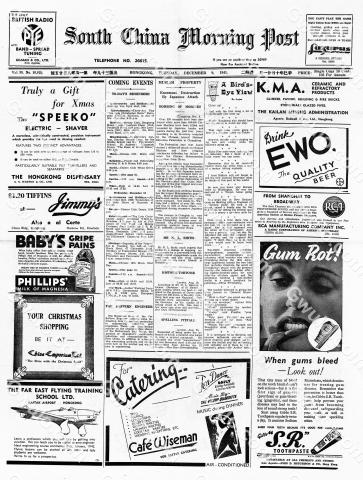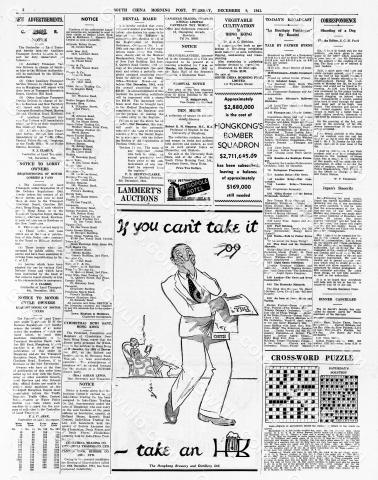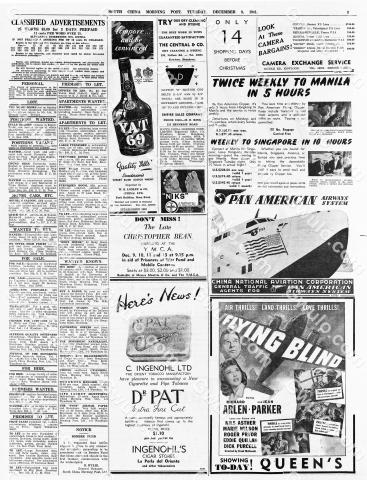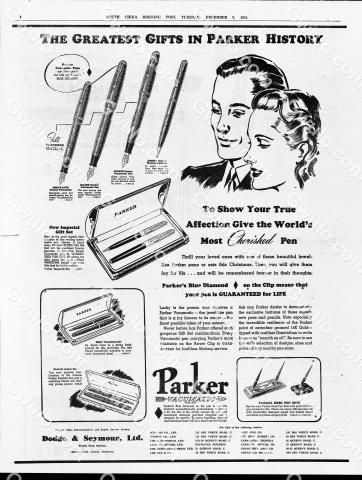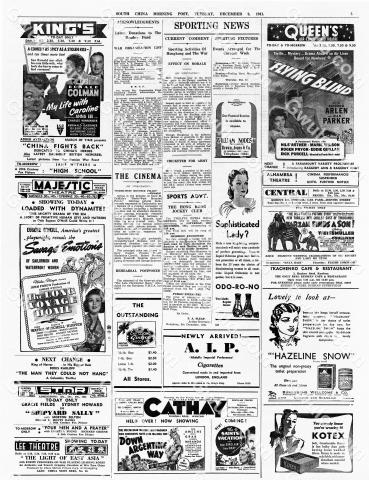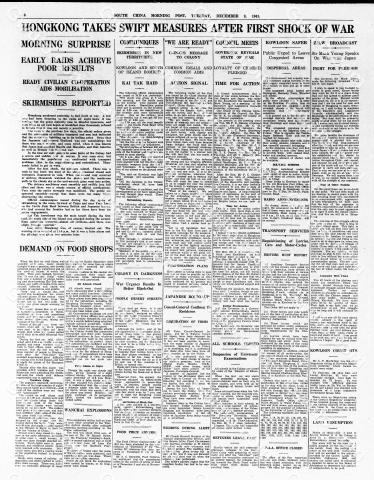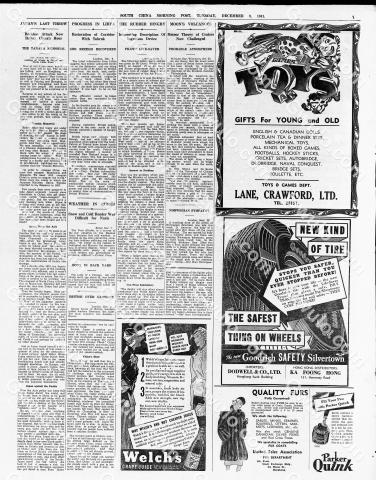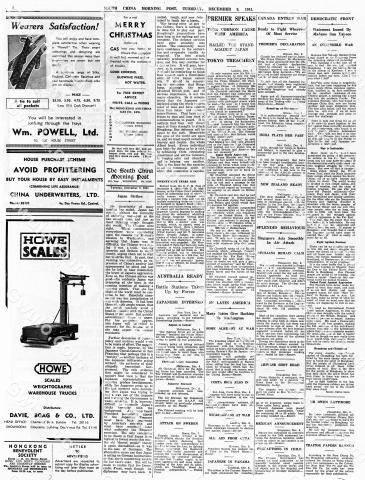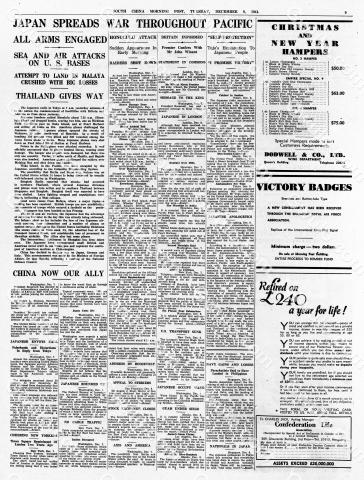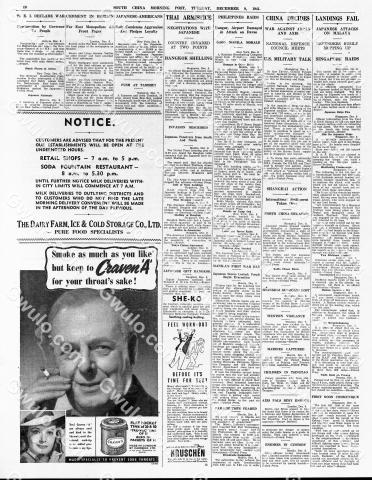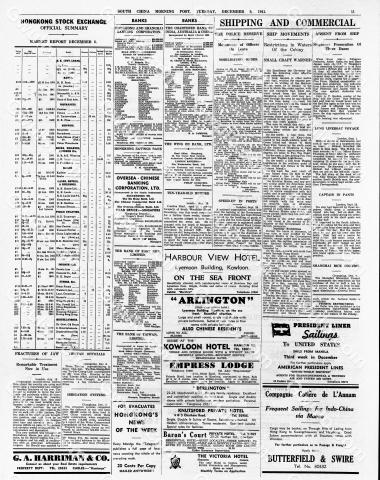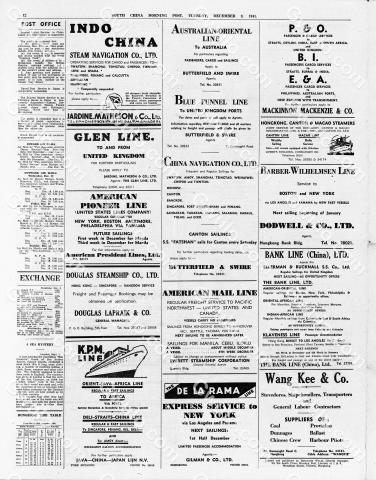The morning saw us up early and after redistribution of stores and ammo and a clean up in the water which, in our particular quarters , was laid on, we slipped down to the main cave for breakfast and discussion as to what was to be done. Being a miserable misty morning, we could move with freedom and, about tiffin time, we had our first view of the enemy as they came over Lead Mine Pass to Grassy Hill and, in fact, we had our first thrill as one of the shells landed directly among a group of them on the skyline. During the afternoon Mike had explained the set up to us and had given us the news – at least to us – that Monia Talan was still in HK trying to arrange the final details of the Shataukok guerrilla attack. It was decided then that Mike and I should return that night to the Royal Scots HQ with news of what we had seen of enemy activity in an area where, it had been said, “they would never come”, and, if possible, give help in mining the paths in that area – Mike then to return to HK and I to come back to No.2. Other four, Teesdale, Holmes, Day and Gardner were to accompany us as far as Half Hour Pass, thence to Nam Fung Tao to collect the remainder of the gear including the radio.
Setting off just at dusk, we made good time down the trail to a point just below Half Hour Pass where we split ways – the others moving off to Nam Fung Tao.
Proceeding on down the catchment above the Royal Scots lines and realising that we were on fixed lines of fire we started at intervals giving our pre-arranged Morse signal by flash. To these, however, we received only one half-hearted reply and, not feeling very happy about being shot up by my fellow countrymen, not to mention our own land mines, we started through the lines. Crossing the catchment bridges was amusing despite the seriousness of the situation. Mike crawled over it on his hands and knees feeling for any possible trip wire while I, waiting a discreet five yards or so behind, suddenly realising that an explosion might smack me, retired behind a rock and remained there coyly peeping at Mike’s backside slithering across the concrete. Having crossed the bridge we fought our way through the undergrowth to the road, halting every few yards for me to call out “Friend, can we come through”. Still no reply and we walked up the road talking and smoking, hoping that our noise would proclaim us as friends. We finally contacted Lt. Fenwick of the Royal Scots and while having a drink with him and his platoon sergeants, Arnott and Whippy, we heard the news of Japanese passing over Kaplung and Telegraph Pass and along the roads to Taipo on the east and Castle Peak on the west. During this time, a telephone message having been sent, a runner had been sent from the redoubt to escort Mike up to that point. As he entered Arnott had just opened a second bottle of beer and insisted on it being drunk. While this was being polished off the news came through that the redoubt (we were on the left flank) was being attacked – the runner having the key in his pocket (Capt. Jones orders). Out the platoon tumbled into trenches overlooking the valley in front of the redoubt and anticipating a flanking movement by the Japs. covering Bungalow Hill. It was dark and windy and as the battle continued with almost continuous M.G. fire and explosions of grenades, shouts of men and sharp orders came across. Although only gunfire and torches could be seen one could easily envisage the actual scene. Visible too – were the Japanese officers leading up among the barbed wire entanglements (by the platoon on our right) – using torches and waving swords in feudal manner. Shortly after this, orders came to withdraw to B. Coy. HQ at the foot of the Shing Mun valley and back we went to find extra men moving up in the direction from which we had come. Since it was impossible to retrace the path to Taimoshan I decided to stay the night with Fenwick’s platoon and return the following evening or rather the same day as it was now after midnight and a wet miserable morning. Mike meanwhile had got on to a phone and was off reporting to G.H.Q.
